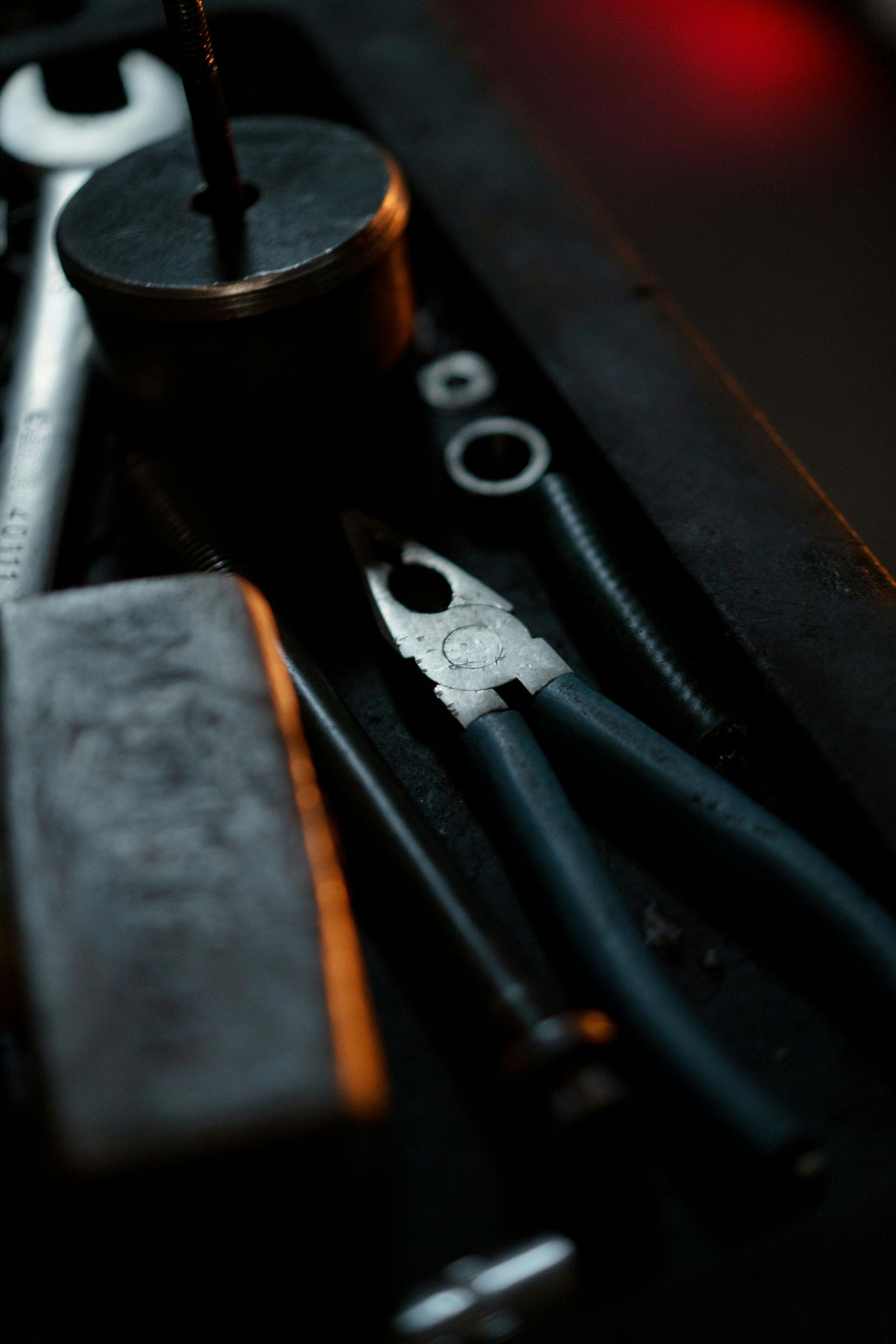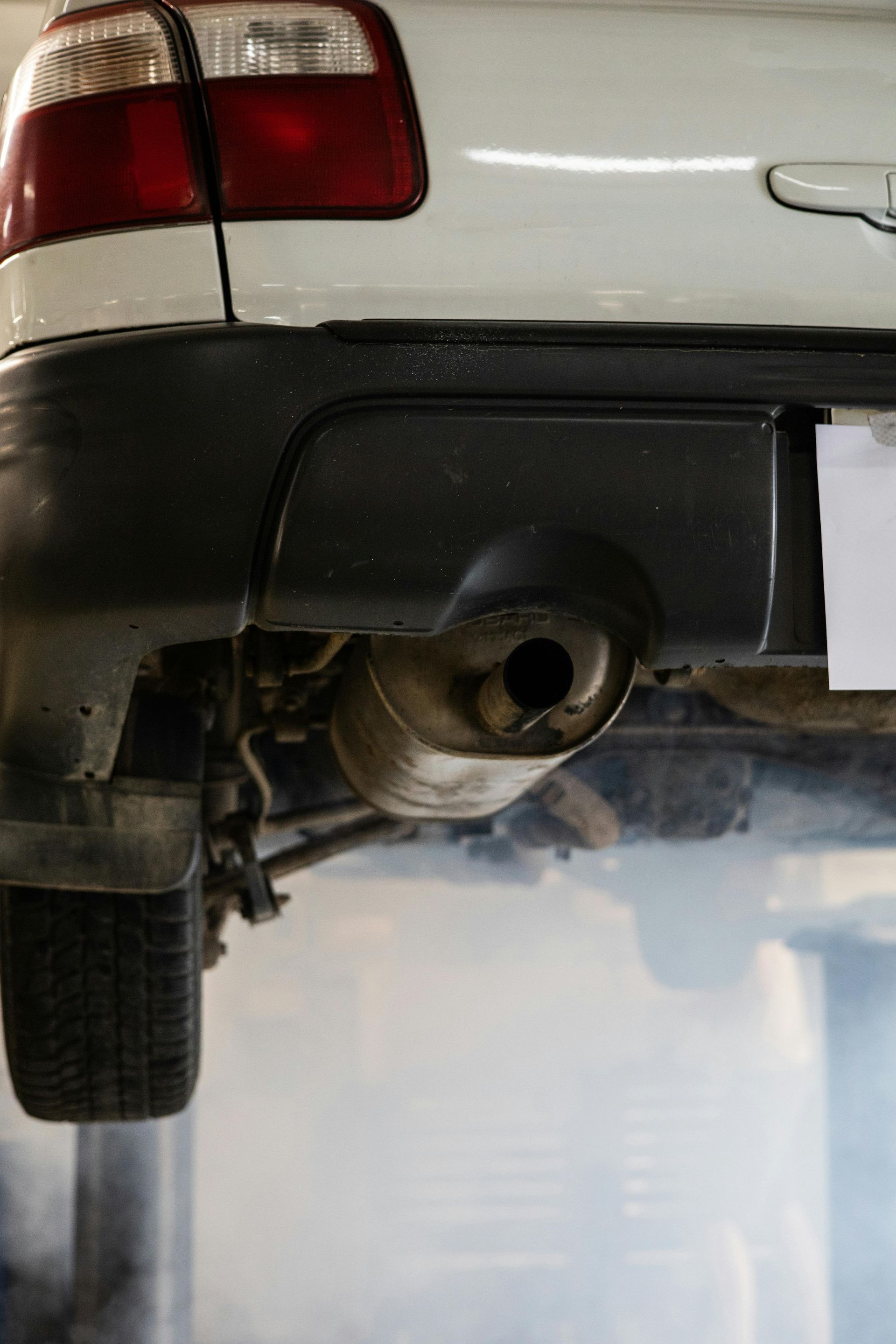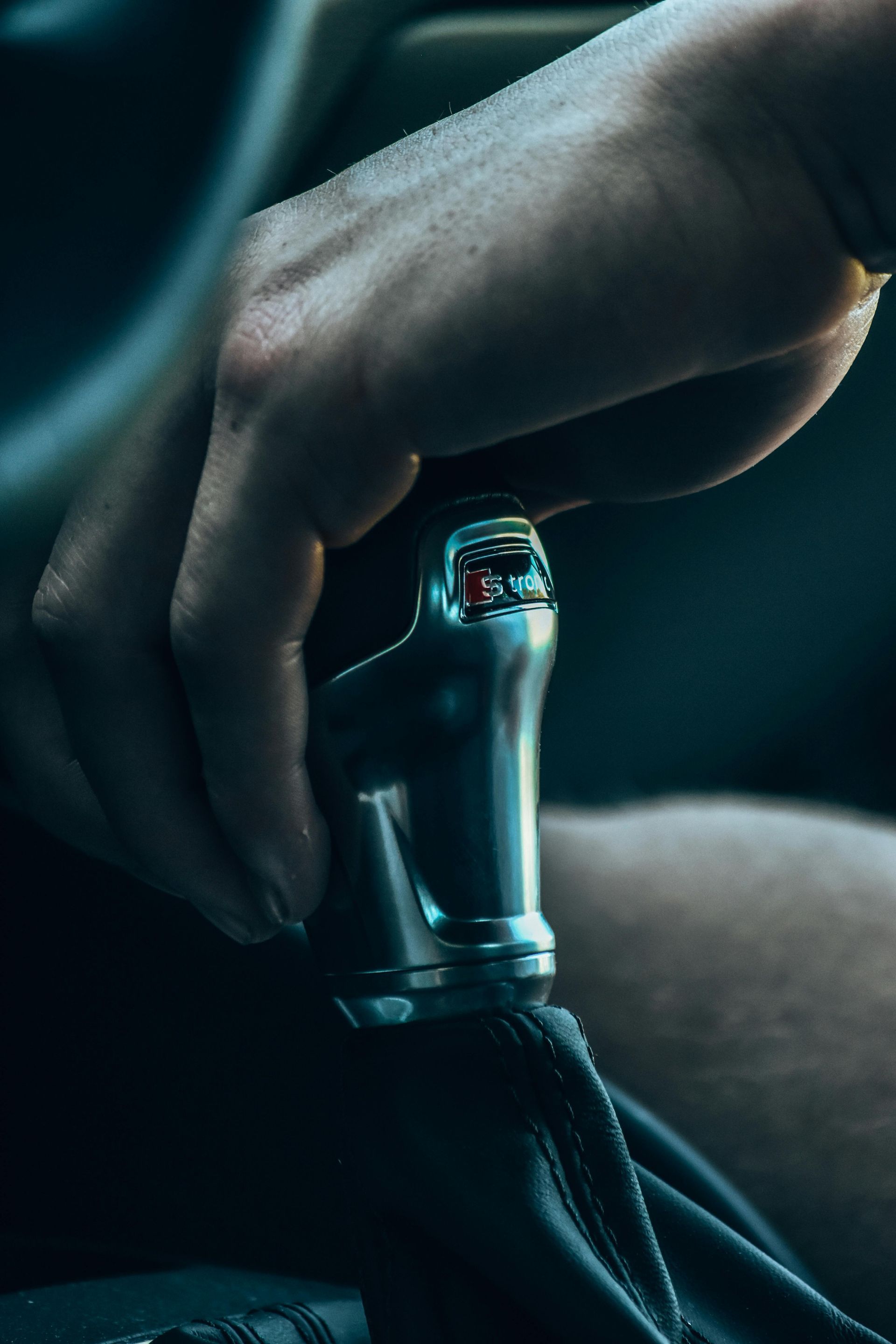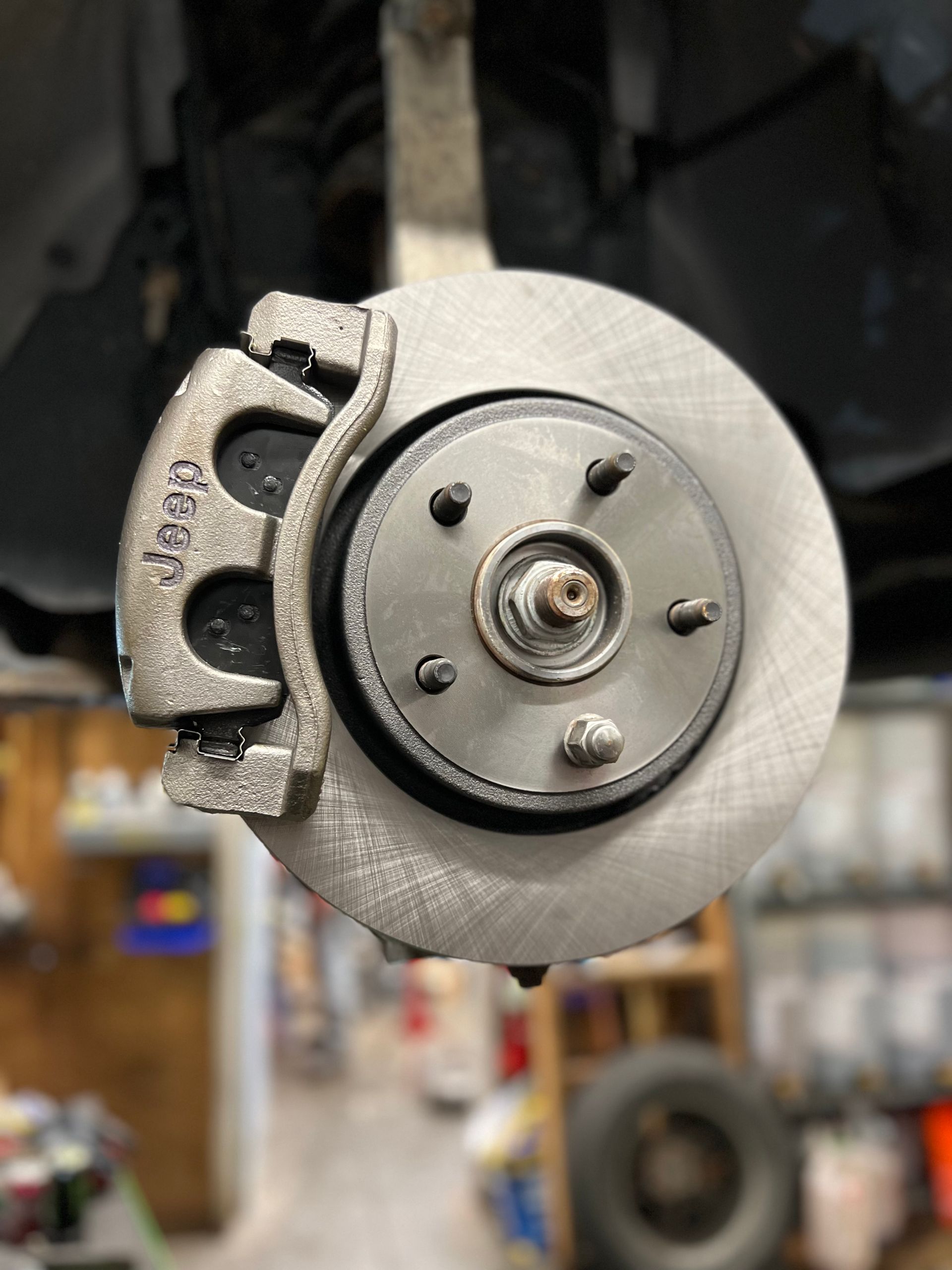Addressing Transmission Issues Early
Taylor Finnegan • December 18, 2024
Why it matters for your vehicle
When it comes to your vehicle, few systems are as crucial as the transmission. It’s responsible for transferring power from your engine to the wheels, allowing you to move forward, backward, and everywhere in between. Despite its importance, many drivers delay addressing transmission issues until it’s too late, leading to costly repairs or even complete transmission failure. Here’s why you should bring your car to a trusted mechanic at the first sign of a transmission concern.
Early Warning Signs of Transmission Trouble
Recognizing the signs of transmission problems early can save you time, money, and headaches down the road. Some of the most common symptoms include:
Unusual Noises: Whining, grinding, or clunking sounds when shifting gears.
Slipping Gears:The car suddenly changes gears without input, or the engine revs without corresponding acceleration.
Delayed Shifting:Hesitation or delay when shifting from park to drive or between gears.
Leaking Fluid:Transmission fluid leaks can appear as bright red, dark red, or brown puddles under your vehicle.
Dashboard Warning Light: A transmission warning light or check engine light could indicate an issue.
Burning Smell: Overheated transmission fluid often emits a burnt smell.
Why Prompt Action is Crucial
1. Prevent Escalated Damage
A minor transmission issue can quickly escalate into a major problem if left unaddressed. For example, low transmission fluid levels due to a leak can cause overheating, leading to severe internal damage. Catching the issue early can prevent the need for a full rebuild or replacement.
2. Save Money
Transmission repairs are often significantly cheaper when the problem is minor. Replacing a damaged solenoid or sealing a leak is much less expensive than a complete overhaul or new transmission installation.
3. Maintain Vehicle Safety
A malfunctioning transmission can compromise your vehicle’s safety. Slipping gears or delayed acceleration can make merging onto highways or navigating busy intersections hazardous. Addressing issues promptly ensures your vehicle remains reliable and safe to drive.
4. Extend Transmission Lifespan
Regular maintenance and prompt repairs help extend the life of your transmission. Neglecting issues can lead to premature wear and tear, reducing its overall lifespan and the resale value of your vehicle.
rust Superior Transmissions and Auto for Your Transmission Needs
At Superior Transmissions and Auto, we specialize in diagnosing and repairing transmission issues to keep your vehicle running smoothly. Whether it’s a minor adjustment or a complete rebuild, our experienced technicians use advanced diagnostics and high-quality parts to ensure your transmission performs at its best.
Don’t wait for a small issue to turn into a costly repair. If you notice any signs of transmission trouble, bring your vehicle to Superior Transmissions and Auto in New Windsor, NY. Contact us today to schedule an inspection and keep your car on the road where it belongs.

At Superior Transmissions and Auto, we’ve built our reputation on doing the job right — especially when it comes to drivetrain components like differentials. One question we hear a lot is, “Why rebuild a differential when I could just replace it?” Short answer: Rebuilding saves you money, gets you a better-quality product, and ensures the job is done to your vehicle’s exact needs. And the best part? We handle the entire rebuild in-house, from teardown to final torque specs — so you get expert-level work without the markup. Let’s break it down. 1. Cost Savings You Can Actually Feel A brand-new differential from the dealer can cost thousands — and that’s before labor. Many of those new units are mass-produced and may include components you don’t even need. By rebuilding your existing differential, we focus on fixing exactly what’s worn, saving you hundreds (and in some cases, well over a thousand dollars) while keeping the core housing and gears that are still in great shape. When we rebuild, we replace critical components like: Bearings Seals Shims Worn-out gears (when needed) You’re only paying for what’s necessary — no more, no less. 2. A Better Product Than Many "New" Replacements Rebuilt in-house doesn’t mean compromised quality. Quite the opposite. Many aftermarket or remanufactured differentials are rebuilt in bulk with low-cost parts, questionable tolerances, and minimal testing. At Superior, we rebuild each differential to precise factory specs using high-quality, OEM-grade or better components. That means: Hand-fit clearances Precision gear setup Proper break-in procedures Final torque and preload checks before it goes back in your vehicle We know exactly what went into your rebuild — because we did it ourselves, right here in our New Windsor, NY shop. 3. In-House Means Faster Turnaround and Better Accountability When we rebuild your differential in-house, there's no waiting on third-party suppliers or guessing what's been done behind closed doors. We walk you through the diagnosis, show you the wear and tear, and explain exactly what parts are going in. Plus, if something ever needs rechecking, we already know the history — and we stand behind our work. 4. Built for Your Driving Needs Whether you’re driving a work truck, a family SUV, or a weekend performance car, we tailor each rebuild to your use case. Need a stronger setup for towing? Quiet operation for long highway drives? A better gear ratio for off-roading? We can make it happen — right here. Need a Rear Differential Rebuild? Let’s Talk If you’re hearing whining, clunking, or feeling binding in your drivetrain — don’t wait. Differential problems tend to get worse (and more expensive) the longer they go unchecked. Give us a call or stop by Superior Transmissions and Auto. We’ll diagnose the issue, walk you through your options, and let you know if a rebuild is the best move. Chances are, it will save you money and get you back on the road with confidence. Superior Transmissions and Auto Transmission and Differential Specialists — Right Here in New Windsor, NY 📞 [Insert your phone number] 📍 [Insert your shop address] 💻 [Insert website link or booking info]

We had a customer come into Superior Transmissions and Auto recently—a woman who had been told her Nissan Rogue had a serious transmission issue. Understandably, she was concerned. Transmission work can be a big deal, and the last thing anyone wants is to hear that their car might need a major, expensive repair. But here’s the thing: after giving her vehicle a full inspection and running our diagnostics, it became clear the problem wasn't the transmission at all. The issue was actually coming from her exhaust system. The sound and symptoms that led her to believe something was wrong with the transmission were being caused by an exhaust leak—something that’s far less costly and far easier to fix. She left our shop relieved—and rightfully so. No unnecessary repairs, no upsells, no pressure. Just an honest answer and a clear explanation of what was really going on. Why This Matters It’s situations like these that highlight the importance of working with a shop that knows the difference—and cares enough to tell you the truth. Unfortunately, not every shop operates that way. We’ve seen it time and time again: customers being misdiagnosed, sold on repairs they don’t need, or left confused about what’s actually wrong with their car. At Superior Transmissions and Auto, integrity is part of our process. We specialize in transmissions and drivetrain work, so when someone comes in thinking they have a transmission problem, we know what to look for—and more importantly, when it’s not the transmission. That saves our customers stress, time, and a lot of money. What You Can Expect From Us Honest diagnostics: We’ll always tell you what’s really going on—even if it’s not the major job you thought. Experienced techs: With deep knowledge of drivetrains, exhaust systems, and everything in between, we’ll get it right the first time. No pressure: We’ll explain what we find and let you decide what to do next—no pushy tactics. Whether you’re dealing with a weird noise, a check engine light, or a mechanic somewhere else telling you your transmission is toast, come see us first. You might just walk away with good news.

Why Asking the Right Questions Can Save Your Transmission and Your Wallet When your transmission starts slipping or fails altogether, panic sets in fast. And in that stressful moment, it’s easy to grab onto the first offer that sounds convenient—especially when it includes something like “Free Towing.” But in the world of transmission repair, convenience can come at a cost—and often, it’s a high one. If you’re searching for a reliable transmission shop, the most important thing you can do is ask the right questions—before you let anyone tow your vehicle, before you sign anything, and definitely before you're presented with a sky-high bill. Why Asking the Right Questions Matters Transmissions aren’t your average repair job. They’re complicated systems that require specialized knowledge, precision, and the right tools. Unfortunately, some places that advertise transmission work don’t actually do it themselves. Instead, they’ll try to sell you a remanufactured unit at a premium or install a used one from a junkyard—without even properly diagnosing your issue. Even worse, the promise of “free towing” can be a bait-and-switch tactic. Once your car is in their possession, you may be pressured into costly decisions with limited options. The Right Questions to Ask Any Transmission Shop Before you give a shop your keys, ask them these essential questions to protect yourself and your vehicle: 1. Do you rebuild transmissions in-house? This is one of the biggest differentiators between true transmission specialists and general repair shops. If the answer is no, they’re likely just swapping units and charging you for the markup. 2. Can you explain what’s wrong and show me the parts? A reputable shop will walk you through what’s going on, show you the damage, and explain your options in clear terms. Transparency is key. 3. Are you recommending a rebuilt, remanufactured, or used transmission—and why? There’s a big difference between these options. A rebuilt transmission (done in-house by a skilled technician) can be more cost-effective and reliable than a remanufactured one shipped in from somewhere else or a questionable used unit from a junkyard. 4. What kind of warranty do you offer? Don’t settle for vague promises. A quality rebuild should come with a real warranty that protects your investment and gives you peace of mind. 5. Who is actually doing the work on my vehicle? You have a right to know who’s working on your car. Are they certified? Do they specialize in transmissions? Make sure it’s not being outsourced or handled by a general tech without the proper training. The “Free Towing” Trap Here’s the hard truth: free towing is never really free. It’s a strategy. And once your vehicle is at a shop that doesn’t actually rebuild or diagnose transmissions properly, you may find yourself with limited choices—and inflated repair costs. Many customers get stuck agreeing to overpriced replacements that weren’t necessary to begin with. We’ve seen it happen time and time again: someone gets quoted thousands for a full replacement, only to come to us and discover the issue was minor—and completely repairable. Choose a Shop That Specializes in Transmissions At Superior Transmissions and Auto, we don’t believe in gimmicks. We believe in skilled work, honest diagnostics, and doing what’s best for your vehicle—not what’s best for our bottom line. We rebuild transmissions in-house, and we take pride in walking customers through exactly what’s going on and how we can fix it. Our goal is to get you back on the road safely, confidently, and without overpaying for something you didn’t need. Have questions? We’re here to answer them—no pressure, no bait, no surprises.

That’s Why We Offer Financing with Koalafi! Let’s be honest — nobody ever wakes up thinking, “I should set aside a little extra cash in case my transmission goes tomorrow.” It’s one of those repairs that hits you out of nowhere. One day your car’s running fine, and the next, you’re facing a repair bill that feels like it came out of left field. At Superior Transmissions and Auto, we understand how stressful that can be. We see it all the time: people come in needing a major repair, but the cost wasn’t something they planned for. That’s why we offer financing options through Koalafi — because your life shouldn’t come to a halt over a car repair. What Is Koalafi? Koalafi is a financing solution that helps customers get the repairs they need now and pay over time. It’s especially helpful for unexpected repairs, like a transmission rebuild or replacement. Whether your credit is great, fair, or needs some work, Koalafi looks at more than just your credit score to give you a shot at financing. Why We Chose Koalafi We’ve worked with other financing programs in the past, but Koalafi stands out for a few key reasons: Fast approvals — You can apply in minutes, right from your phone or our office. Flexible payment options — Choose a plan that works for your budget. High approval rates — Koalafi helps more customers get approved, even if they’ve had past credit challenges. No prepayment penalties — Want to pay it off early? Go for it — no extra fees. How It Works Apply in minutes: We'll send you a link to apply, or we can help walk you through it at the shop. Get a decision fast: You’ll know in seconds if you're approved. Drive with peace of mind: Once approved, we get to work, and you drive away knowing your repair is handled — without draining your savings. We’ve Got Your Back At Superior Transmissions and Auto, we’re all about getting you back on the road — safely and affordably. We know a transmission breakdown can throw your whole life off balance, but with financing through Koalafi, you don’t have to wait or stress. So if your car’s making a noise it shouldn’t, slipping gears, or just not running right — give us a call. We’ll diagnose the problem, walk you through your repair options, and help set you up with financing if you need it. No judgment, no pressure — just real solutions when you need them most.

When it comes to keeping your car running smoothly, there are plenty of general repair shops out there offering a little bit of everything. But when the issue is your transmission—the heart of your drivetrain—you want more than just a shop that does a bit of everything. You want specialists. You want Superior Transmissions and Auto. Transmissions Are What We Do Best At Superior Transmissions and Auto, transmissions aren't just part of what we do—they're our core specialty. Rebuilds, replacements, diagnostics, upgrades—you name it, we’ve done it. Day in and day out, we work on transmissions of all kinds: automatic, manual, CVT, dual-clutch, and beyond. It’s not just a service we offer, it’s what we’ve built our name on. Experience That Speaks for Itself General auto shops often rely on broad knowledge to cover a wide range of services, but they may only see a handful of transmission jobs a year. We see them all the time. With years of hands-on experience, our technicians know the ins and outs of transmissions better than anyone. We've seen every common failure—and plenty of uncommon ones, too. That means faster diagnoses, more accurate repairs, and fewer return visits for you. The Right Tools and the Right Training Transmission work requires specialized tools, equipment, and diagnostic software that most general shops simply don’t invest in. We’ve got it all. Our team is trained specifically to handle the complexities of transmission systems, including the latest tech in today’s modern vehicles. From gear ratio analysis to electronic solenoid testing, we have the resources and know-how to get it right the first time. Trust Built on Results We’ve earned the trust of our customers through honesty, precision work, and a dedication to getting the job done right. When you bring your vehicle to Superior Transmissions and Auto, you’re not getting guesswork—you’re getting expert-level attention backed by years of proven success. Bottom Line: Don’t Settle for General Your transmission is too important to leave in the hands of just any repair shop. When it comes to something this vital (and this expensive), trust the specialists. Trust the team that lives and breathes transmissions. Come see why so many drivers in New Windsor and the surrounding area trust Superior Transmissions and Auto for reliable, expert transmission service. Book your appointment today and let the real transmission pros take care of your ride.

As the weather warms up and the days get longer, it’s the perfect time to give your vehicle some much-needed attention. After a long winter of freezing temperatures, road salt, and potholes, your car deserves a little TLC before you hit the road for summer fun. At **Superior Transmissions and Auto**, we’ve seen firsthand how seasonal changes affect vehicle performance—and we’re here to help you stay ahead of potential issues. Here’s a handy spring and summer maintenance checklist to keep your vehicle running smoothly and safely: 1. Check and Top Off Fluids Winter can be rough on your vehicle’s fluids. Now’s the time to check: - Engine oil - Transmission fluid - Coolant/antifreeze - Brake fluid - Windshield washer fluid Transmission fluid, in particular, is critical for smooth shifting and heat dissipation—especially in summer traffic and road trips. If your transmission fluid is low, dirty, or smells burnt, stop by Superior Transmissions and Auto for a fluid check or service. 2. Inspect Your Tires Temperature swings can cause tire pressure to fluctuate. Check: - Tire pressure (including the spare!) - Tread depth - Signs of uneven wear Proper tire maintenance not only improves safety and fuel efficiency but also helps your suspension and drivetrain last longer. 3. Brake Check Salt and moisture can wreak havoc on brake components. If you hear squeaking, grinding, or feel a soft pedal, get your brakes inspected ASAP. Brake jobs are one of our specialties, and we’ll make sure your stopping power is where it needs to be. 4. Cooling System Inspection Your cooling system works extra hard in hot weather. We’ll inspect your radiator, hoses, belts, and thermostat to prevent overheating and costly engine damage. 5. Air Conditioning System No one wants to get stuck in summer traffic without A/C. If your air isn't blowing cold or smells musty, your system may need a recharge or service. 6. Battery & Electrical System Cold winters drain batteries, and summer heat speeds up wear. We’ll check your battery’s charge, terminals, and ensure your alternator and starter are working properly. 7. Suspension & Alignment Potholes and rough winter roads can knock your alignment out of whack and damage suspension components. If your car pulls to one side or you notice unusual tire wear, we can get you straightened out. 8. Lights, Wipers & Filters - Replace worn wiper blades - Clean or replace air filters and cabin filters - Check all exterior lights for functionality Ready for a Worry-Free Summer? Whether you’re planning a weekend getaway or just commuting in the summer heat, proper maintenance makes all the difference. Let our expert technicians at Superior Transmissions and Auto in New Windsor, NY, get your vehicle ready for the season. Stop by or schedule your spring/summer maintenance today! 📞 Call us | 📍 Visit us | 💬 Message us online (845)522-8104 | 997 Little Britain Road New Windsor NY 12553

As the weather warms up and road trip season kicks into gear, many of us are gearing up for weekends at the lake, family camping trips, and summer getaways. Whether you’re towing a camper, boat, or trailer, one thing’s for sure: your vehicle needs to be up for the task. Towing puts a lot of extra stress on your vehicle—especially the transmission, brakes, suspension, and cooling system. If you haven't had it looked at recently, now’s the time. A simple inspection could be the difference between smooth sailing and being stuck on the side of the road with a smoking engine or slipping transmission. Here’s why a pre-tow inspection matters: 1. Protect Your Transmission Your transmission takes on a serious load when you’re towing. Overheating is one of the top reasons transmissions fail while towing, especially in warm weather. If your transmission fluid is old, burnt, or low, it could spell disaster. A transmission service or at least a fluid check can help prevent expensive damage. 2. Check the Brakes Towing increases your stopping distance—and worn or spongy brakes make things even riskier. Before you hitch up that camper or trailer, make sure your brake pads, rotors, and fluid are in good shape. If your vehicle has trailer brakes, those should be checked too. 3. Make Sure the Suspension and Tires Can Handle the Load A sagging rear end, worn shocks, or underinflated tires can make towing dangerous. Proper tire pressure and healthy suspension help keep everything stable and under control on the road, especially on hills or in windy conditions. 4. Cooling System Check Towing generates more heat—not just in the engine, but across the entire drivetrain. Make sure your radiator, coolant, and fans are all functioning properly to avoid overheating. 5. Electrical and Lighting Systems You’ll need fully functional trailer wiring for brake lights, turn signals, and running lights. A quick diagnostic can make sure your connections are working properly and won’t leave you in the dark (literally). Don’t Wait for a Breakdown—Prevent One At Superior Transmissions and Auto, we see it every year: customers roll in with transmission issues, brake failures, or overheating problems after a trip has gone south. That’s why we always recommend getting your vehicle looked at before you tow. We offer full pre-tow inspections, including transmission checks, fluid services, brake inspections, suspension assessments, and electrical diagnostics. We’ll make sure your vehicle is road-ready so you can enjoy your summer worry-free. Planning to tow this season? Let’s get your vehicle ready. Give us a call or schedule your inspection today.

Understanding New York State’s Catalytic Converter Law and Its Impact on Repair Costs If you’ve recently been told that your catalytic converter needs replacement, you might be surprised to learn that we can only install a dealer catalytic converter—no aftermarket options allowed. This is due to strict New York State emissions laws, which significantly affect both availability and cost. Let’s break down why this regulation exists and why it makes catalytic converter replacement so expensive. New York’s Catalytic Converter Law New York State follows California Air Resources Board (CARB) standards, which are some of the most stringent emissions regulations in the country. In 2013, New York adopted these regulations to reduce vehicle emissions and improve air quality. Under this law, any replacement catalytic converter must meet CARB standards, which means it must be specifically designed, tested, and certified to perform at a higher level than standard federally approved converters. Why We Can Only Use Dealer Catalytic Converters Due to these strict regulations, aftermarket catalytic converters that meet CARB compliance are extremely limited and, in many cases, completely unavailable. This means that for most vehicles, the only legal replacement option is an original equipment manufacturer (OEM) catalytic converter from the dealership. Unlike other states where generic aftermarket converters are widely available and legal, New York requires that the replacement part match the vehicle’s original emissions system exactly. Why This Makes Repairs More Expensive There are a few key reasons why this law makes catalytic converter replacement a costly repair: Higher Cost of OEM Parts: Dealer catalytic converters are significantly more expensive than aftermarket alternatives. Since they are manufactured to precise specifications and meet the highest emissions standards, their price reflects the advanced technology and materials used. Limited Supply and Availability: Because aftermarket converters are not an option, demand for dealer catalytic converters is high. This often leads to longer wait times and even higher costs due to supply chain constraints. More Labor-Intensive Installation: Some OEM catalytic converters are integrated into the exhaust system in ways that require additional labor and specialized tools to replace, increasing the overall repair cost. No Alternative Solutions: In many other states, vehicle owners have the choice of installing a federally approved aftermarket catalytic converter at a fraction of the cost. However, in New York, failing to use a CARB-compliant part could result in your vehicle failing an emissions test, making it illegal to drive. What This Means for You If your catalytic converter needs to be replaced, it’s important to understand that while this law increases costs, it also ensures that vehicles operate as cleanly and efficiently as possible. While we know this isn’t always the news you want to hear, we are here to help guide you through the process and get your vehicle back on the road legally and safely. At Superior Transmissions and Auto, we are committed to providing honest, high-quality repairs while complying with all state laws. If you have any questions about your catalytic converter or any other vehicle repairs, don’t hesitate to reach out to us. We’ll help you navigate the process and ensure your car stays compliant with New York’s strict emissions regulations.

Why Are New Brake Pads Squeaking? The Copper Reduction Explained: If you've recently had new brake pads installed and noticed a slight squeak, you're not alone. Many drivers assume that squeaky brakes mean poor quality or improper installation, but in reality, there's a scientific reason behind the noise—one that involves the environment, government regulations, and a shift in brake pad materials. The Environmental Impact of Copper in Brake Pads For decades, copper was a key ingredient in brake pads. It helped with heat dissipation, provided smooth braking, and—ironically—helped reduce brake noise. However, every time brakes were applied, tiny particles of copper would wear off and wash away into the environment, often making their way into rivers and streams. This seemingly minor issue had major consequences. Scientists found that copper from brake dust was accumulating in waterways, where it had a toxic effect on fish populations. Copper disrupts the ability of fish to detect predators and communicate with each other, ultimately harming their survival. Salmon, in particular, were found to be highly sensitive to copper pollution, which led environmental agencies to take action. New Regulations and Changes to Brake Pad Formulas To address this environmental concern, laws were introduced to phase out copper in brake pads. In 2010, states like California and Washington passed legislation requiring a reduction in copper content, with the goal of eliminating it almost entirely by 2025. Brake manufacturers adapted by developing new formulations using alternative materials such as ceramic fibers, steel, and organic compounds. While these new formulations are effective at stopping vehicles safely, they don't have the same noise-dampening properties as copper. As a result, even high-quality brake pads now tend to produce a slight audible squeak, especially during the break-in period or in certain weather conditions. What Does This Mean for Drivers? If your new brakes are making a minor squeaking noise, don’t panic—this is now a normal characteristic of modern brake pads. The sound doesn’t indicate poor quality or improper installation, but rather a shift toward more environmentally friendly materials. While some high-end pads incorporate noise-reducing features, a slight squeak is no longer something that can be entirely avoided. That said, if your brakes are excessively loud, feel weak, or make a grinding noise, you should have them inspected. Regular brake maintenance and choosing the right pads for your driving habits can help minimize noise while ensuring your vehicle remains safe on the road. At Superior Transmissions and Auto, we’re committed to keeping you informed about the latest changes in automotive technology. If you have any concerns about your brakes, give us a call or stop by our shop in New Windsor, NY—we’ll make sure your vehicle is in top shape!

Owning a vehicle comes with the responsibility of regular maintenance to ensure safety, efficiency, and longevity. Following recommended maintenance intervals is crucial for preventing breakdowns, avoiding costly repairs, and keeping your vehicle in optimal condition. Below, we’ll go over key maintenance items, their recommended intervals, and why they matter. 1. Oil Changes (Every 3,000 - 7,500 Miles) Why it matters: Engine oil lubricates moving parts, reducing friction and preventing overheating. Over time, oil breaks down and becomes contaminated, leading to engine wear. What happens if you skip it: Dirty or insufficient oil can cause overheating, increased friction, and eventually, engine failure. 2. Transmission Fluid (Every 30,000 - 60,000 Miles) Why it matters: Transmission fluid keeps your transmission cool and lubricated, ensuring smooth gear shifts and preventing premature wear. What happens if you skip it: Old, dirty fluid can cause slipping, rough shifts, and eventually, total transmission failure—one of the most expensive repairs. 3. Brake Pads and Fluid (Pads: Every 25,000 - 70,000 Miles, Fluid: Every 2 Years) Why it matters: Brake pads create friction to stop your vehicle, and brake fluid transmits pressure for effective braking. What happens if you skip it: Worn brake pads reduce stopping power and can damage rotors. Contaminated brake fluid can cause brake failure, leading to dangerous situations. 4. Tire Rotations and Alignments (Rotation: Every 5,000 - 8,000 Miles, Alignment: Annually or as Needed) Why it matters: Regular tire rotations ensure even wear, improving traction and extending tire lifespan. Proper alignment prevents uneven wear and improves handling. What happens if you skip it: Uneven wear leads to poor traction, increased fuel consumption, and the need for premature tire replacement. 5. Coolant Flush (Every 30,000 - 50,000 Miles) Why it matters: Coolant prevents engine overheating and corrosion inside the cooling system. What happens if you skip it: Old coolant loses effectiveness, leading to overheating and potential engine damage. 6. Air Filters (Engine: Every 15,000 - 30,000 Miles, Cabin: Every 12,000 - 15,000 Miles) Why it matters: The engine air filter keeps debris out of your engine, and the cabin filter ensures clean air inside your vehicle. What happens if you skip it: A clogged engine filter reduces fuel efficiency and performance, while a dirty cabin filter leads to poor air quality inside the car. Whether you're dealing with seasonal allergies, asthma, wildfire smoke, or poor air quality, a cabin air filter helps ensure the air inside your car stays cleaner and healthier. 7. Battery Check and Replacement (Every 3 - 5 Years) Why it matters: A healthy battery ensures reliable starts and powers essential electronics. What happens if you skip it: A weak battery can leave you stranded and may cause electrical issues in your vehicle. 8. Timing Belt or Chain (Belt: Every 60,000 - 100,000 Miles, Chain: Inspect Regularly) Why it matters: The timing belt/chain synchronizes engine components, ensuring smooth operation. What happens if you skip it: A broken timing belt can cause catastrophic engine damage, requiring a costly rebuild or replacement. Why Maintenance Intervals Matter Each maintenance item has a recommended interval for a reason. These intervals are set by manufacturers based on extensive testing and real-world data to ensure that your vehicle operates efficiently and safely. Ignoring these intervals can lead to decreased performance, costly repairs, and even unsafe driving conditions. Regular maintenance also helps retain the value of your vehicle, as a well-maintained car will last longer and run more efficiently. Conclusion Following your vehicle’s recommended maintenance intervals is not just about keeping your car running—it’s about safety, reliability, and saving money in the long run. Regular maintenance prevents unexpected breakdowns, extends the life of your vehicle, and improves fuel efficiency. If you’re unsure about your car’s maintenance schedule, check your owner’s manual or give us a call! Customers often ask us, "What’s the most reliable car?" The best answer is simple—a well-maintained one! At Superior Transmissions and Auto, we specialize in keeping your vehicle in peak condition with expert service and repairs. Contact us today to schedule your next maintenance appointment and keep your car running smoothly for years to come!




